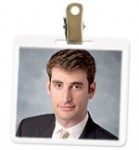Andy and Nellie’s feud continued in last night’s episode (“Andy’s Ancestry”) and Nellie’s revenge strategy was actually kind of funny. In response to Andy’s directive to research his (and eventually everyone else’s) ancestry, Nellie made up various historical figures that were supposedly related to the staff members. Andy was initially excited to learn about his shared ancestors with Michelle Obama; but after Oscar pointed out that Andy’s ancestors therefore likely owned slaves, Andy became a little conscious of his “bossiness” for the rest of the episode.
While Andy’s continued harassment of Nellie may or may not be actionable (after all, it does not seem to be based on any protected class; he just doesn’t like her), the biggest threat to the company in this episode seems to be Nellie’s texting and driving. When she starts to read a text from Andy while driving Pam’s car, Mrs. Halpert wisely grabs the phone. Nevertheless, texting and driving is a major problem for all of us. In 2010, the National Safety Council estimated that 28% of all traffic accidents were because of talking or texting on cell phones while driving.
Although not every accident will lead to employer liability, employers should still be concerned when employees text and drive. Under the general elements of respondeat superior theory of liability, employers are responsible for injuries to third parties when its employee commits negligence while acting within the scope of his or her employment. Accordingly, a strong policy prohibiting cell phone use while driving for any purpose can show a fact finder that the employee wasn’t acting within the scope of his or her employment. To be effective, the policy needs to be communicated to the employer’s employees and then subsequently enforced with serious consequences for any violations of the policy. Although we’re only starting to see these cases litigated in bulk, the litigation value of these cases can be extremely high. See, e.g., Ford v. Int’l Paper Co. (Ga.) (company paid $5.2 million to settle personal injury claim after employee rear-ended plaintiff while using company-provided cell phone); Bustos v. Dyke Indus. Lumber Wholesalers (2001 jury verdict for $21 million; company later settled for $16.1 million); Ragsdale v. Cable One Inc. (Tx.) (confidential settlement arising out of the deaths of two victims); and Yoon v. Cooley Godward (Va.) (lawyer struck pedestrian while talking on phone with clients led to undisclosed settlement because phone call was work-related).
Crisis averted in this episode, but Andy’s open contempt for Toby over the last few episodes can only mean less enforcement of company policies (if they even exist). Thankfully, that should give us enough material to finish out this series!


